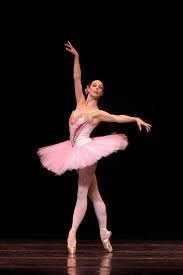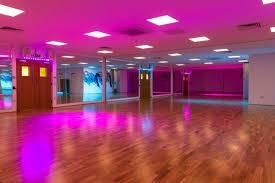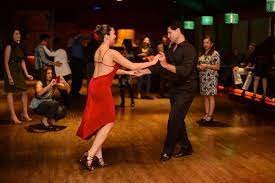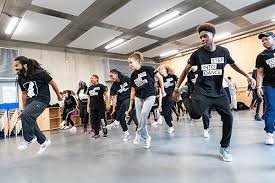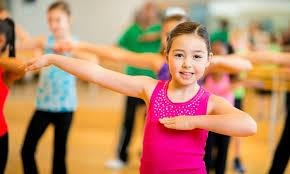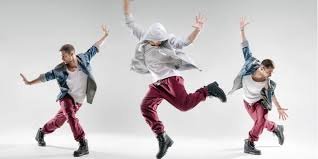How Do I Start A Dance Workshop? What Do You Do At A Dance Workshop?
Starting a dance workshop can be an exciting and rewarding experience, but it also requires careful planning and preparation. Here are some steps to help you get started:
- Define Your Goals and Vision
Before starting your workshop, you need to define your goals and vision. What do you want to achieve with your workshop? What kind of dance styles will you teach? Who is your target audience? These questions will help you define the scope and purpose of your workshop.
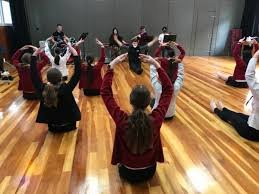
- Choose a Location
Choosing a location for your workshop is important. Look for a space that is easily accessible, has good lighting, ventilation, and enough room for dancers to move freely. Consider factors like availability, cost, and convenience when choosing a location.
- Set a Budget
Starting a dance workshop can be expensive, so it’s essential to set a budget. This budget should include expenses such as renting the space, purchasing equipment, hiring instructors, and marketing your workshop.
- Develop a Curriculum
Develop a curriculum that outlines what will be covered in each session of your workshop. Determine the level of skill you are targeting, and create exercises and routines that are appropriate for that level. Make sure to include warm-up exercises, stretches, technique drills, and choreography.
- Hire Instructors
If you are not qualified to teach all the dance styles you want to include in your workshop, you need to hire instructors who are. Look for experienced and skilled instructors who can teach the styles you want to include in your curriculum.
- Market Your Workshop
Marketing your workshop is essential to attract participants. Consider creating a website or social media page to promote your workshop. Advertise your workshop in local newspapers, dance studios, and online dance communities. Offer discounts for early registration or referrals.

- Purchase Equipment
You will need some equipment for your workshop, such as dance flooring, mirrors, sound systems, and props. Make sure you have all the necessary equipment and that it’s in good condition.
- Plan the Schedule
Determine the schedule for your workshop. Decide on the frequency and duration of each session, and make sure it’s convenient for your participants. Provide a detailed schedule in advance, so participants can plan accordingly.
- Prepare for the First Session
Before the first session, make sure everything is in order. Arrive early to set up the space, equipment, and music. Greet your participants and introduce yourself and your instructors. Explain the rules and expectations, and make sure everyone is comfortable and ready to start.
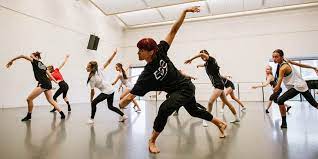
- Evaluate and Adjust
After the first session, ask for feedback from participants and instructors. Use this feedback to improve your workshop, adjust your curriculum, and refine your teaching approach.
Starting a dance workshop requires hard work, dedication, and passion. With careful planning and preparation, you can create a successful and enjoyable experience for your participants.
What Do You Do At A Dance Workshop?
At a dance workshop, participants can expect to engage in a range of activities that are designed to develop their skills and abilities in various dance styles. Here are some of the things you might do at a dance workshop:
- Warm-Up Exercises
The workshop will likely begin with a warm-up to prepare participants physically and mentally for the upcoming dance activities. The warm-up may include stretches, cardio exercises, and body conditioning exercises that are specific to the type of dance style being taught. The warm-up is crucial to prevent injury and to get participants’ bodies ready for the more challenging dance moves.

- Technique Training
After the warm-up, participants will engage in technique training to learn the foundational steps and movements of the dance style being taught. The instructor will demonstrate and explain each step, and participants will have the opportunity to practice the movements and receive feedback from the instructor. The instructor will often break down the steps into smaller components and teach them gradually to help participants build their skills.
- Choreography Instruction
Once participants have learned the foundational steps, they will begin to learn a choreographed routine. The instructor will teach the routine step-by-step, breaking it down into manageable sections. Participants will have the opportunity to practice the routine and receive feedback from the instructor. The choreography instruction will continue until the entire routine has been learned.
- Partner Work
Depending on the type of dance style being taught, participants may engage in partner work. This involves working with a partner to perform specific dance moves and sequences. The instructor will often provide guidance and feedback to help participants improve their technique and coordination. Partner work can be a fun and challenging way to develop your dance skills and build trust and teamwork with your partner.
- Freestyle Dancing
Freestyle dancing is a chance for participants to dance without a specific routine or structure. This is an opportunity for participants to express themselves and apply the techniques they have learned in a more free-flowing and improvisational manner. The instructor may play music and encourage participants to dance in a specific style or encourage them to explore and experiment with different movements.

- Feedback and Evaluation
Throughout the workshop, participants will receive feedback and evaluation from the instructor. The instructor will observe and assess each participant’s performance, providing feedback on technique, posture, and overall dance ability. This feedback is important for participants to understand their strengths and weaknesses and to make improvements. The instructor may also provide tips and advice on how to continue improving their dance skills outside of the workshop.
- Cool-Down Exercises
The workshop will end with cool-down exercises to help participants cool down and stretch their muscles after the physical activity. The cool-down will include stretching and breathing exercises to help participants relax and recover from the workout.
Overall, a dance workshop is an immersive experience that provides participants with the opportunity to learn new dance styles, improve their skills and abilities, and connect with others who share their passion for dance. Whether you are a beginner or an experienced dancer, a dance workshop can be an enjoyable and rewarding experience that helps you grow as a dancer.

